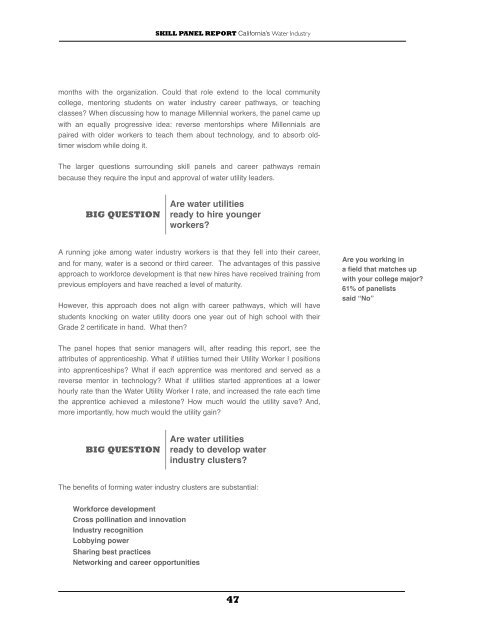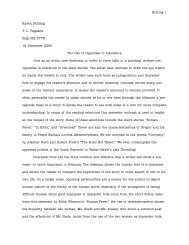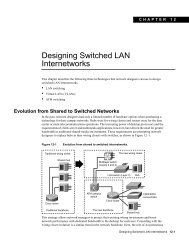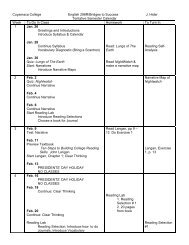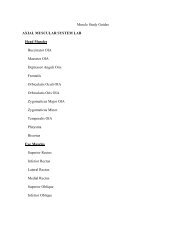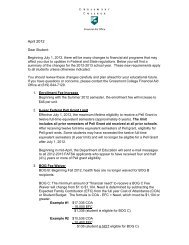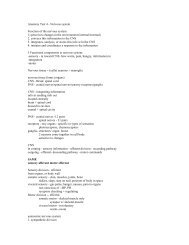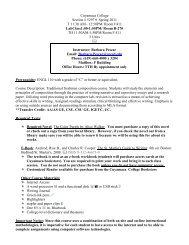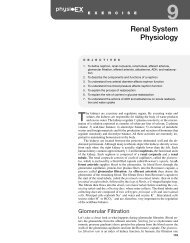SKILL PANEL REPORT California's Water Industry - Cuyamaca ...
SKILL PANEL REPORT California's Water Industry - Cuyamaca ...
SKILL PANEL REPORT California's Water Industry - Cuyamaca ...
Create successful ePaper yourself
Turn your PDF publications into a flip-book with our unique Google optimized e-Paper software.
<strong>SKILL</strong> <strong>PANEL</strong> <strong>REPORT</strong> California’s <strong>Water</strong> <strong>Industry</strong>months with the organization. Could that role extend to the local communitycollege, mentoring students on water industry career pathways, or teachingclasses? When discussing how to manage Millennial workers, the panel came upwith an equally progressive idea: reverse mentorships where Millennials arepaired with older workers to teach them about technology, and to absorb oldtimerwisdom while doing it.The larger questions surrounding skill panels and career pathways remainbecause they require the input and approval of water utility leaders.BIG QUESTIONAre water utilitiesready to hire youngerworkers?A running joke among water industry workers is that they fell into their career,and for many, water is a second or third career. The advantages of this passiveapproach to workforce development is that new hires have received training fromprevious employers and have reached a level of maturity.However, this approach does not align with career pathways, which will havestudents knocking on water utility doors one year out of high school with theirGrade 2 certificate in hand. What then?Are you working ina field that matches upwith your college major?61% of panelistssaid “No”The panel hopes that senior managers will, after reading this report, see theattributes of apprenticeship. What if utilities turned their Utility Worker I positionsinto apprenticeships? What if each apprentice was mentored and served as areverse mentor in technology? What if utilities started apprentices at a lowerhourly rate than the <strong>Water</strong> Utility Worker I rate, and increased the rate each timethe apprentice achieved a milestone? How much would the utility save? And,more importantly, how much would the utility gain?BIG QUESTIONAre water utilitiesready to develop waterindustry clusters?The benefits of forming water industry clusters are substantial:Workforce developmentCross pollination and innovation<strong>Industry</strong> recognitionLobbying powerSharing best practicesNetworking and career opportunities47


